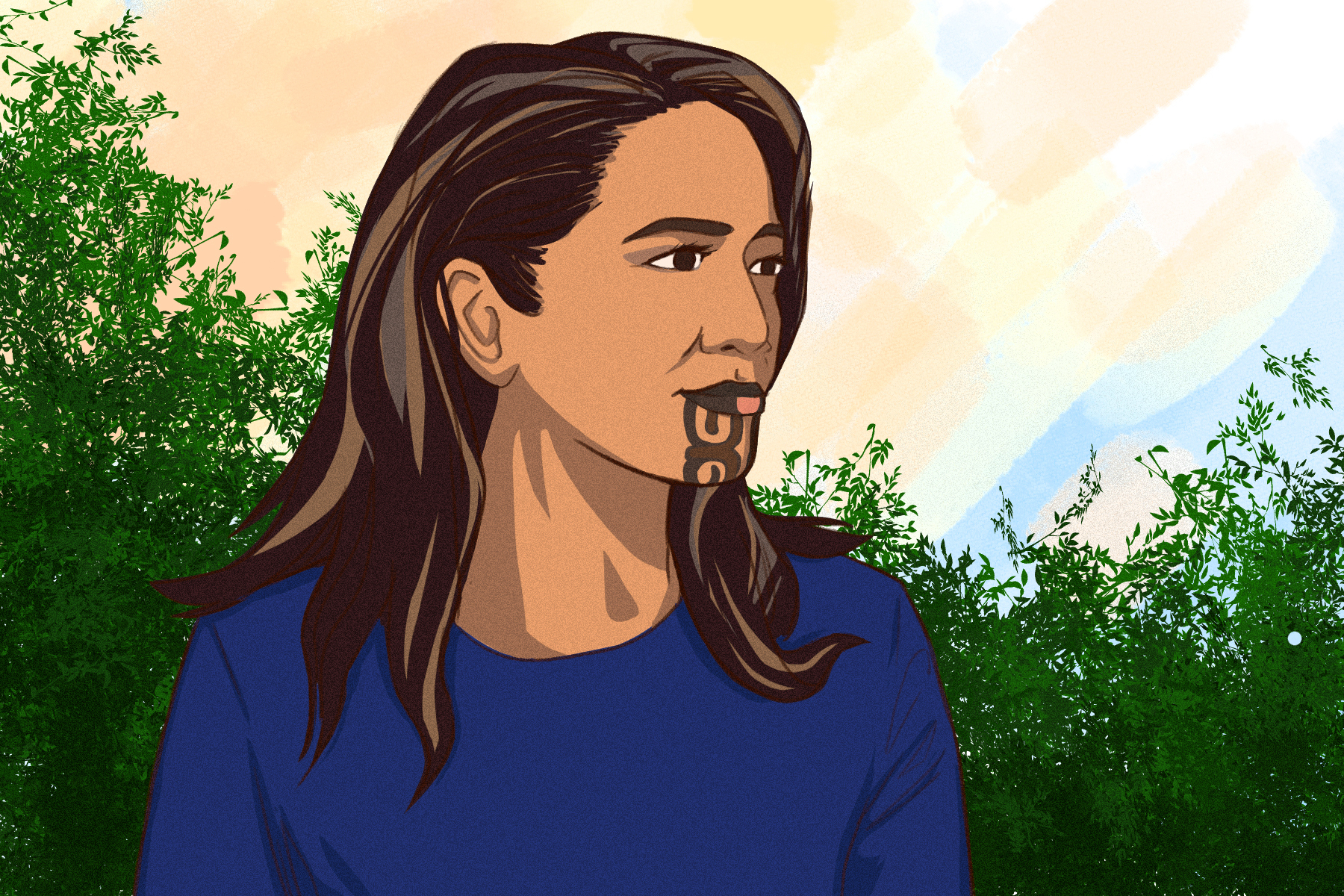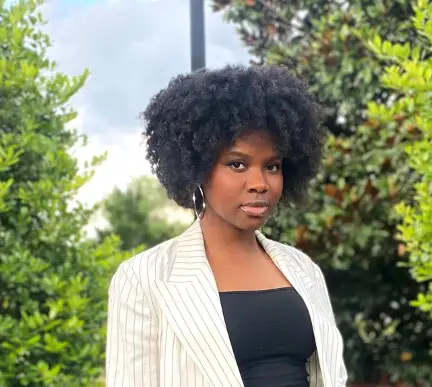Oriini Kaipara has made mainstream headlines because of her face tattoo honoring her heritage. From New Zealand, she is a Māori broadcaster, translator and interpreter of te reo, the language spoken by the Māori people. She became the first person with Māori face markings to anchor primetime news. According to CNN, “Oriini Kaipara made headlines worldwide after hosting her first 6 p.m. bulletin for Newshub on the TV channel three, with many lauding the milestone as a win for Māori representation.” The 39-year-old journalist has spent her life motivated to represent her people and tell the story of her customs and native heritage.
In January 2019, Kaipara decided to get a moko kauae, a traditional Māori facial tattoo for women — and when she appeared on television with it, she made history. In her various interviews, she explains how she researched her culture and took a DNA test that proved her heritage. It allowed her to embrace her culture and chase her dream. According to an interview with WBUR, a nonprofit news organization, her tattoo took about three hours to complete.
Most importantly, when a person decides to get a traditional tattoo, they forge a deep spiritual connection with their ancestors and culture. For women, the facial marking is placed on their chin, whereas men cover most of their faces with a design known as the mataora. Kaipara told CNN, “When I doubt myself, and I see my reflection in the mirror, I’m not just looking at myself, I’m looking at my grandmother and my mother, and my daughters, and hers to come after me, as well as all the other women, Māori girls out there and it empowers me.” By 2021, “She became the first person ever to present a primetime news bulletin while proudly wearing such a cultural emblem.”
Who Are the Māori People?
To better understand the Māori people and their culture, one must know that they are the indigenous people of New Zealand. The Māori people are known for their face tattoos and rich culture. The Morning explains, “Their traditional history describes their origins in terms of waves of migration that culminated in the arrival of a ‘great fleet’ in the 14th century from Hawaiki, a mythical land usually identified as Tahiti.” When the Māori arrived in New Zealand in the 1300s, each person had a different tribe they identified with. In 1840, the British took control of New Zealand, which prompted the Māori to go to war in 1857 to protect their land. The Māori culture recognizes and emphasizes the importance of their ancestors. They fought for their independence and are still trying to regain what the colonizers took from them. Reclaiming their heritage is vital because of what was taken away from them — their language, culture, land and much more.
Why Does Representation Matter?
Representation is vital in a world full of people of different backgrounds. Not seeing people who look like you on-screen affects how you think of yourself and how others think of you. Representation allows people to feel they belong in a world they don’t feel a part of. Everyone wants to be recognized and valued; they want to feel and know that they matter. Although everyone does, many do not get that opportunity because society either paints them in a terrible light or not at all. No matter your race or religion, you are as important as everyone else and deserve to be treated with respect and equality.
For instance, Kaipara is a perfect example of why representation matters. She made television history because of her traditional facial tattoo and her use of her Māori heritage to educate and encourage people to speak. When asked who inspired her, she mentions Māori broadcaster Tini Molyneux because she grew up watching her on television as a young girl. “She was my idol. She had the same skin color as me… she sounded like me, she looked like me. And she comes from where I come from originally, my family, whakapapa (ancestors), where our ancestral ties are to our land.” That is to say, representation matters, and people and companies should educate themselves about other races and ethnicities. Everyone knows how important it is to have someone who looks like them in the media and in the workplace.
What Can We All Learn From Oriini Kaipara?
If you have something you fear, don’t let it stop you. Do what you feel is necessary even if you are scared, and remind yourself of why you must do it. For instance, when Kaipara was being interviewed on WBUR, the interviewer asked her, “Did you fear it harming your career?” Her response showed everyone her strength: “I’m not doing this for my job. I’m doing this for myself.” From watching how Kaipara talks about it on screen, everyone can tell how important her culture is to her. She bravely took on the responsibility of educating people about her heritage and being a voice for those who could not speak. She empowered many women from different backgrounds to know that there is space for them to be heard. They are visible, and those before them have helped pave the way.

















